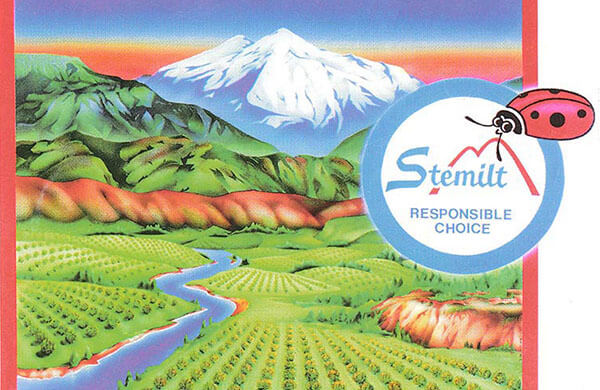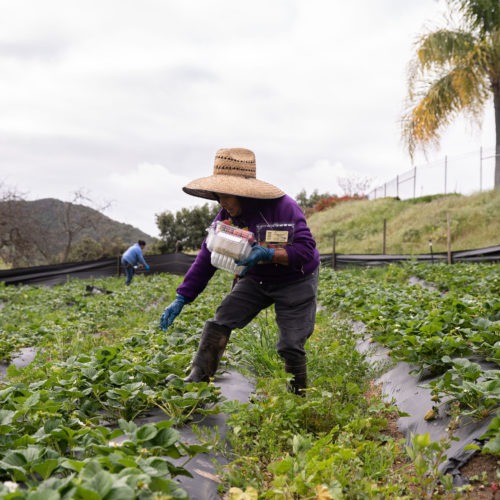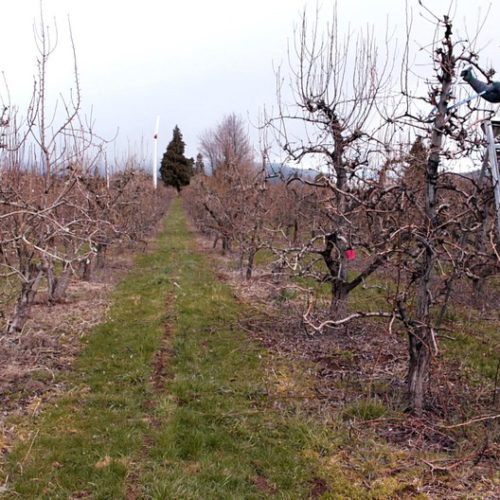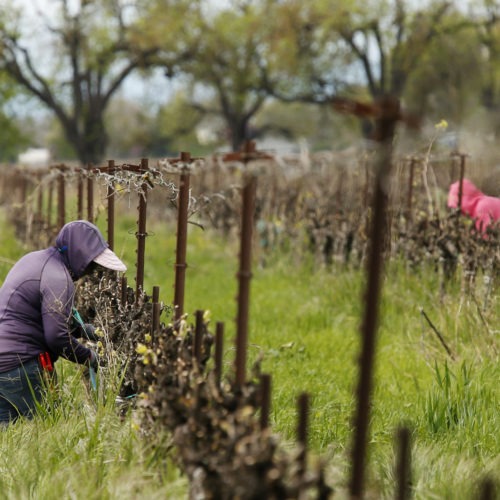
Bunk Beds And Working Conditions For Washington H-2A Farmworkers Prompt Lawsuits
READ ON
Two Mexican farmworkers are launching a class-action lawsuit against one of the biggest apple and pear growers in the Northwest.
Gilberto Gómez García and Jonathan Gómez Rivera came to Wenatchee, Washington from Jalisco, Mexico through Stemilt Ag Services in 2017 on guest-worker visas. They allege that they were routinely threatened to be fired by managers if they didn’t pick a certain number of bins of apples per day.
The threats stemmed from a change in production standards set forth in Stemilt’s guest worker contract, according to Diana Garcia, an attorney with Columbia Legal Services representing both workers. Garcia says the production standard was not submitted for approval to the U.S. Department of Labor.
“Unless it’s approved by the (Labor Department), they can’t change the contract,” Garcia said.
She added that the threat of being fired is especially worrisome for guest workers on H-2A visas.
“If (guest workers) complete the contract, the employer pays for them to go back to their home.” Garcia said. “If they’re fired, the H-2A worker has to pay their own way back home. And in addition, they’re basically blacklisted.”
Gómez García and Gómez Rivera have not returned to the U.S. as guest workers since working with Stemilt in 2017, according to attorney Diana Garcia.
The workers also allege Stemilt violated Washington state wage laws. When guest workers were transported to Stemilt orchards to work, managers required them to wait more than half an hour to start work and at the end of the day while managers did paperwork, according to the lawsuit.
Unlike local farmworkers, foreign workers are unable to leave abusive working conditions, Garcia said.
“The workers, once they arrive in the United States, they can’t leave their worksite or seek employment with another employer if the working conditions are bad or if the employer changes the work contract like what happened in this case.”
Stemilt did not respond to a request for comment by late Monday afternoon.
Bunk Beds
In a separate case related to H-2A farmworkers, last Friday a Thurston County judge upheld the use of bunk beds in housing foreign farmworkers on Washington farms. That came despite concerns of health hazards amid the COVID-19 pandemic raised by farmworker unions.
Earlier this year, the state Department of Labor and Industries (L&I) banned bunk beds in farmworker housing to alleviate crowded housing conditions during the coronavirus pandemic. But farmers can still use them to house workers from abroad if they’re separated into 15-person cohorts who work, live and travel together.
The exception to the rule led farmworker union Familias Unidas Por La Justicia to sue the state in June. Columbia Legal Services Attorney Andrea Schmitt represented the union in court July 17. Schmitt argued the state had cited no scientific evidence to suggest bunk beds were safe to use and that agencies had sided with industry interests in drafting emergency rules.
Familias Unidas also argued Washington’s L&I and Department of Health should have followed the example of Oregon, which banned bunk beds in May.
Attorneys for the state challenged the allegations, noting that scientific research on the spread of coronavirus is scarce. Additionally, regulators had to draft rules that were feasible for the agricultural industry to adopt.
Farm-operator groups intervened in the lawsuit backing up those claims, noting that a ban on bunk beds would cut housing capacity in half and leave foreign farmworkers out of work.
Presiding Thurston County Judge John Skinder ruled that farmworkers and their lawyers had not sufficiently proven state agencies had been capricious in their rulemaking. Washington farm operators can continue using bunk beds.
Related Stories:

U.S. Department of Labor updates prevailing wage rates for agricultural workers
The U.S. Department of Labor updated the prevailing wage rates for temporary agricultural workers in Washington state. The move came after Familias Unidas por la Justicia, a farmworker’s union in Skagit County, sued the department last May for failing to protect local workers’ wages and labor conditions.

Immigrant Farmworkers Face Unique Challenges As Coronavirus Continues To Spread
One of the most vulnerable groups currently working through the coronavirus pandemic is made up of immigrant farmworkers. As this population works through some of the unique challenges they face due to the coronavirus, one Tri-Cities radio station is trying to help.

White House Seeks To Lower Foreign Guest Farmworker Pay To Help U.S. Farm Owners
White House Chief of Staff Mark Meadows is working with Agriculture Secretary Sonny Perdue to see how wage rates for immigrant farmworkers can be reduced. Critics say it will hurt all workers.















